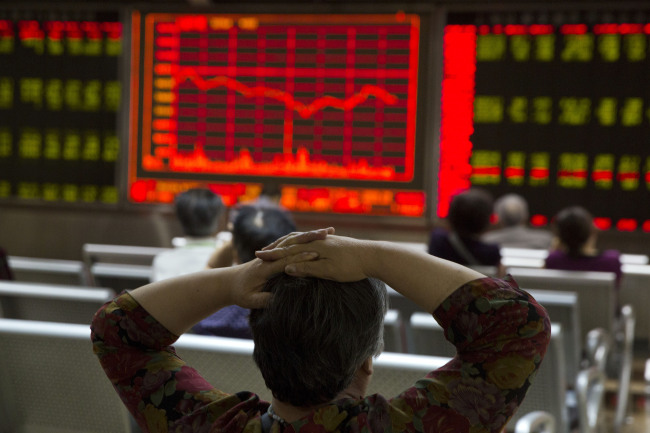Stocks plunged across Asia and U.S. index futures signaled more losses as the selloff in commodities deepened, sending South Africa’s currency toward its biggest drop in two years. The cost of insuring Asian debt jumped with the yen.
All major Asian markets opened lower after U.S. stocks capped their biggest two-day retreat in almost four years Friday. Chinese equities plunged, while Japan’s Topix index closed in on a correction. The yen advanced with the euro amid speculation the global selloff will forestall the Federal Reserve’s first interest-rate increase since 2006. U.S. oil traded below $40 a barrel and nickel slid.
 |
(Yonhap) |
"Things are probably going to get worse before they get better,” Nader Naeimi, head of dynamic asset allocation at AMP Capital Investors Ltd. in Sydney, which oversees about $118 billion, said by phone. “You really need rate cuts and more policy easing in China. In the meantime, things can get worse. We’ve got to see more clarity around the Fed.”
More than $5 trillion has been wiped from the value of global stocks since China unexpectedly devalued the yuan, triggering concern that the slowdown in the world’s second-largest economy is deepening. The rout has seen bets on Fed tightening wound back amid speculation that the U.S. economy isn’t immune to global weakness and that cheaper energy and materials will smother still-nascent inflation.
The MSCI Asia Pacific Index fell for a seventh straight day, sinking 2.9 percent by 10:53 a.m. Tokyo time, set for its lowest close since June 26, 2013. Japan’s Topix index slid 3.3 percent.
The Shanghai Composite Index plunged 7.1 percent, touching the lowest since March, while a gauge of Chinese companies in Hong Kong retreated below 10,000 for the first time since May last year. Speculation on Friday that policy makers would cut the reserve ratio requirement for banks over the weekend proved wrong.
Futures on the Standard & Poor’s 500 Index retreated 0.9 percent after the U.S. benchmark plunged 5.2 percent through the final two days of last week.
The yen jumped 0.7 percent to 121.23 per dollar, the strongest since July 9. The euro advanced 0.4 percent to $1.1436.
Brent crude slipped below $45 a barrel for the first time since March 2009, while a barrel of U.S. crude traded at $39.55. Copper lost 1.3 percent. The rand plunged 2.9 percent.
Before last week, U.S. stocks had held their ground throughout 2015. The S&P 500 had stayed within a range roughly tracking its 50-, 100- and 200-day moving averages, boosted by signs the U.S. economy is recovering and support from central banks. The benchmark index hadn’t had a decline of more than 5 percent all year. (Bloomberg)








